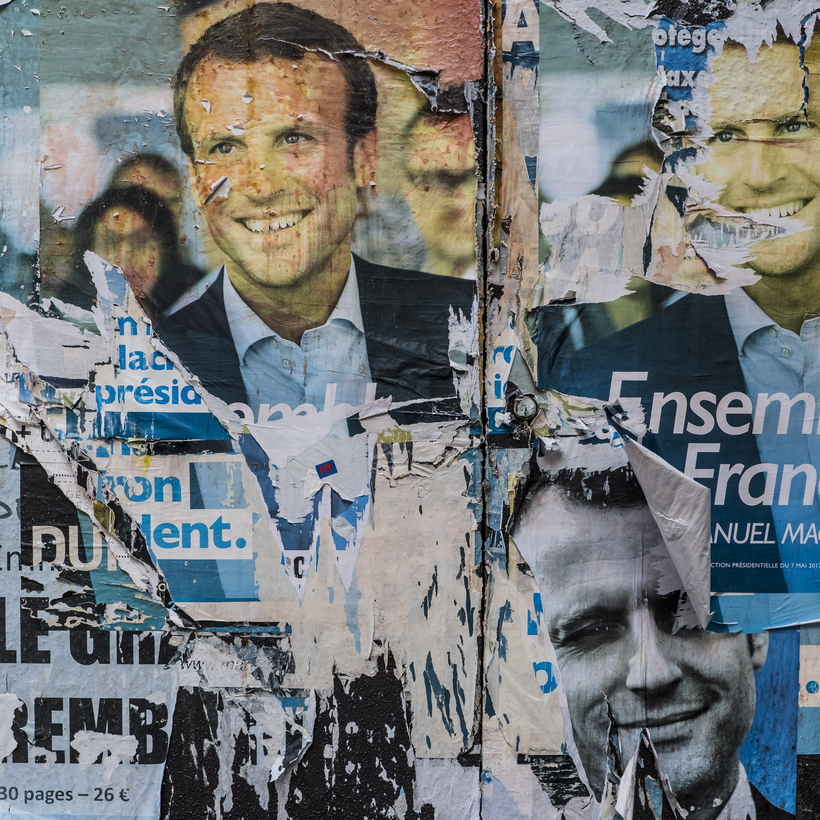Thank goodness Emmanuel Macron beat Marine Le Pen again last month. France is not going the way of Trump, you’re probably saying to yourself. I shall proceed to worry about other things. Enjoy that luxury while it lasts. Over here, l’air du temps is not a contented sigh but vexed hyperventilation. The center may have held for now, but tied as it is to one term-limited man, whose six-year-old party is entirely about himself, with no proper regional networks or a deep enough bench to produce a new candidate, it won’t last for long.
“There’s a disenchantment with politics right now,” says Marie-Aline Méliyi, political editorialist and anchor at France’s LCI network. Like most observers, she notes that around 40 percent of the country voted either hard left or right, with high levels of abstention, even if many voters say they want change. “The COVID crisis completely anesthetized the French people. There was no enthusiasm in the election,” she says.


